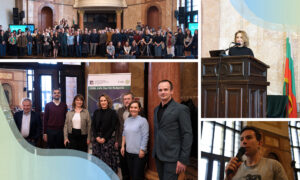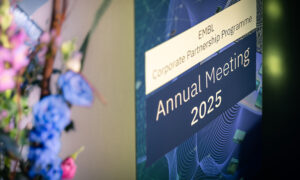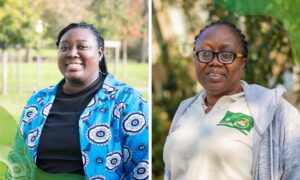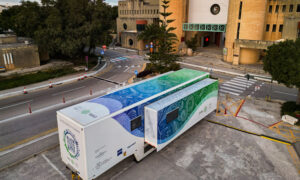
EIROforum, a driver for international science
On taking over as Chair of EIROforum, EMBL Director General Iain Mattaj reflects on the role that EIROforum can play in international science
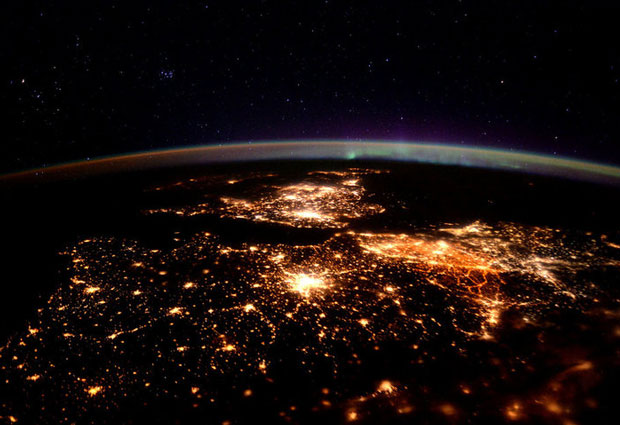
Science has been one of the European project’s great success stories. Since the turn of the millennium, research has been placed centre-stage in the development of a knowledge-based economy. Framework programmes have been transformative, while bottom-up structures such as the European Research Council (ERC) have enabled researchers to help shape science policy and direction, across the continent. Large European scientific facilities and infrastructures have played a similarly important role in driving collaborative research – the creation of EIROforum in 2002 saw the realisation of a visionary consortium that unites Europe’s largest intergovernmental research infrastructure organisations in promoting the quality and impact of European research.
As a group of organisations each funded by many European member states, interdisciplinarity and cross-border cooperation is very much embedded in the DNA of EIROforum members. Yet there was an opportunity to go even further – to join forces in achieving efficiency, cost-effectiveness and even more discoveries. The work we do together is as diverse as it is inspirational. Members collaborate in developing research directions and large-scale infrastructures; they encourage and facilitate discussions between like-minded experts within our organisations and beyond; they share developments and results; they collaborate in activities such as technology transfer and outreach; and they provide a coordinated representation on key issues affecting our organisations to the EU and outside world. 15 years since its launch, we can look back on EIROforum as a huge success, and it is a great honour for me to take over as Chair as we look forward to the coming years.
Common challenges, shared goals
Amongst EIROforum members there is a lot of common ground. Every member strives for excellence in their respective fields, whether it is life science, particle physics, astronomy, space exploration, light sources or nuclear fusion. They have strong links to their respective research communities. They also provide exquisite instrumentation and infrastructure to these communities and provide services, maintenance and upgrades that ensure that Europe competes with the best in the world. Furthermore, they all face similar challenges in recruiting internationally, coordinating the return of staff to member states at the end of their tenure and raising visibility so that communities of European scientists can make best use of available facilities.
Much of the work of EIROforum involves bringing together experts from our organisations in working groups to tackle common problems. One landmark example is the major effort to tackle common challenges in the era of big data: the Helix Nebula project, for instance, brought together three EIROforum partners – CERN, ESA and EMBL – along with private data service providers to deliver cloud computing services for science. This initiative served as a precursor to the European Open Science Cloud pilot project, which brings together a much larger group of stakeholders to deliver innovative cloud services for science.
Another important role that EIROforum plays is in the formulation of European science policy. Through dialogue with the European Commission, EIROforum offers advice on issues such as the long-term sustainability of research infrastructures, open science, innovation potential, mobility and more.
Public outreach and education have been another priority for EIROforum from day one. One of the most visible joint projects is the Science in School journal, which is targeted at secondary and high school teachers. Led by a talented team of editors, the quarterly publication is translated into numerous different languages by committed volunteers, ensuring that inspiring ideas for teaching science – one of EIROforum’s missions – make it into classrooms all over Europe.
Towards global science
EIROforum members have been particularly effective at finding a balance between serving the needs of those member states that are strong in a research field and developing the standard of research within other member states by training in and exposure to the best science. I’m particularly proud of the way my own organisation, EMBL, has achieved this in the life sciences for instance. Collectively, the EIROforum organisations have both advanced and levelled the fields in which they excel, supporting the goals of national organisations, while bringing together the best scientists in their respective research communities from all over the world.
This approach has been crucial to its success – I believe that the future of science is international and global. There are two reasons for this. One is economies of scale: advanced infrastructures are by nature phenomenally expensive, and even the wealthiest nations cannot afford to develop the best infrastructures alone in all areas of science. EIROforum organisations are in the midst of developing some of the most sophisticated machines ever conceived – just two examples are the European Southern Observatory’s Extremely Large Telescope, the largest optical telescope in the world, and the European XFEL, a light source that will generate ultrashort X-ray flashes up to one billion times brighter than current X-ray sources. The second, and more powerful, reason is diversity. By bringing together international teams diverse in discipline, language and culture we are able to tackle problems that do not respect national boundaries and whose solutions are important to every one of us. Diversity makes for better science. EIROforum members present a model of European and global collaboration. I believe that EIROforum can help to spread and deliver this vision of the internationality of science and lead on developing a global model of scientific collaboration and discovery.
